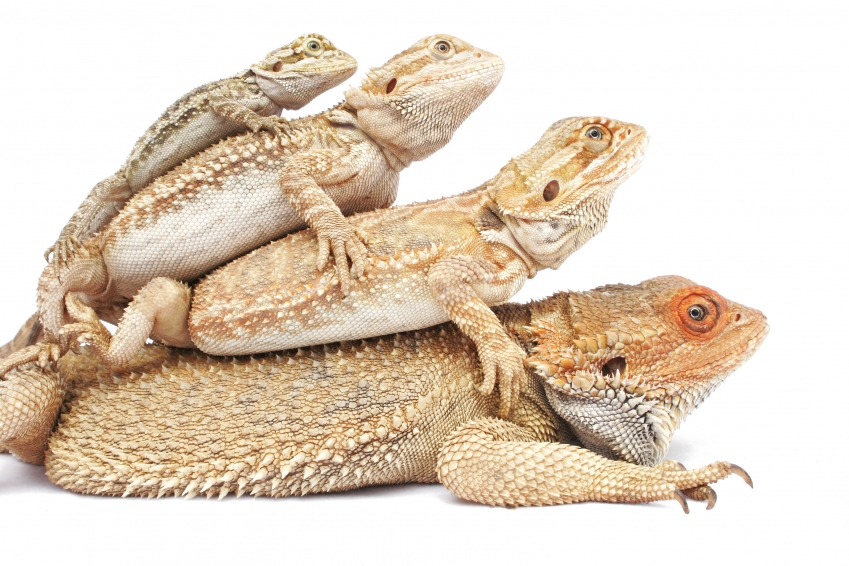My Bearded Dragon Refuses to Eat Crickets: What Can I Do?
My Bearded Dragon Won’t Eat Crickets!

Bearded dragons are adorable, friendly, and fascinating lizards that make great pets. They are easy to care for and, with the right diet and environment, can live long, healthy lives. However, sometimes they refuse to eat crickets, which is a staple food for most bearded dragons.
If your bearded dragon is not eating crickets, there could be several reasons, including:
- Illness or injury
- Stress or anxiety
- Boredom or lack of appetite stimulation
- Incompatibility with other food sources
- Improper cricket preparation or feeding techniques
What to Do if Your Bearded Dragon Won’t Eat Crickets?
If your bearded dragon has refused crickets for more than a week or two, or you notice other unusual symptoms, such as weight loss or lethargy, it is essential to seek veterinary care immediately. However, if your bearded dragon appears healthy, but you are concerned about the lack of appetite or source of nutrition, here are some tips:
1. Offer Different Foods
Bearded dragons are omnivores, meaning they can eat both plant and animal matter. While crickets are a nutritious and beloved food source for most bearded dragons, they are not the only ones. Other options include dubia roaches, mealworms, superworms, waxworms, grasshoppers, black soldier fly larvae, and pinkie mice (for adult bearded dragons). You can also offer fruits, vegetables, and leafy greens as supplements. Variety is the key, and you can experiment with different foods to find what your bearded dragon likes best.
2. Make Sure the Food is Fresh and Nutritious
Whether you are feeding crickets or other types of food, it is crucial to provide fresh, high-quality, pesticide-free, and gut-loaded (fed nutritious food before feeding to your bearded dragon) prey. You can buy live crickets or other insects from a pet store or online, or you can raise them yourself. Ensure the size of the prey matches the size of your bearded dragon’s head or mouth (no larger than the space between their eyes). Avoid feeding wild-caught insects, which may contain parasites or toxins. You can also dust the prey with calcium and vitamin D3 supplements or use gut-loading pellets to enhance the nutritional value.
3. Feed at the Right Time and Place
Another factor that affects your bearded dragon’s appetite is the timing and location of the feeding. Bearded dragons are diurnal reptiles, meaning they are most active during the day and sleep at night. Offer food during daylight hours, when your bearded dragon is alert and hungry, and remove any uneaten prey after 15-30 minutes to avoid contamination or overfeeding. You can try hand-feeding or tong-feeding to make the experience more interactive and stimulating.
4. Check the Temperature and Humidity
Bearded dragons are ectothermic reptiles, meaning they rely on external sources to regulate their body temperature and metabolism. They need a basking spot (with a temperature of 95-105°F) and a cooler spot (with a temperature of 75-85°F) in their enclosure, as well as proper UVB lighting and humidity levels (30-40%). If the temperature or humidity is too low or high, it can affect your bearded dragon’s appetite and health. Use a thermometer, hygrometer, or thermostat to monitor and adjust the conditions in your bearded dragon’s habitat.
5. Reduce Stress and Provide Enrichment
Stress and boredom can also cause your bearded dragon to lose appetite or interest in food. Be sure to provide a spacious, clean, and comfortable enclosure with hides, basking platforms, climbing structures, and other enrichment items. Avoid overcrowding, handling, or disturbing your bearded dragon too frequently or aggressively. Also, make sure to keep the enclosure away from noise, vibration, or other disturbances that can cause stress.
Conclusion
Bearded dragons are usually voracious eaters, but sometimes they develop picky appetites or aversions to certain food sources, such as crickets. As a responsible owner, it is essential to understand the possible reasons and solutions to this problem to ensure your bearded dragon’s health and happiness. With a little patience, creativity, and attention to detail, you can make your bearded dragon eat crickets (or other nutritious food) again!
